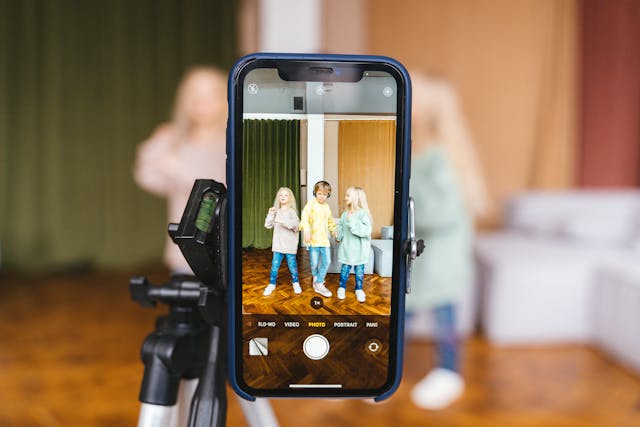Peer to peer filming
Empowering young people as researchers

Empowering young people as researchers

✓ Makes research fun and engaging
✓ Gives young people control
✓ Creates authentic conversations
✓ Shows rather than just tells
✓ Captures real experiences
✓ Develops confidence
✓ Builds research skills
✓ Creates lasting evidence
School/college experiences
Service accessibility
Building usage
Technology use
Transport experiences
Activity participation
Social spaces
Support needs
Physical access
Environmental issues
Recording devices (iPads, tablets)
Chargers
Storage device/cloud access
Backup equipment
Test footage space
Consent forms
Information sheets
Storyboard templates
Question prompts
Privacy notices
Release forms
Check equipment works
Clear storage space
Test sound quality
Prepare quiet filming spaces
Set up viewing equipment
Ensure accessibility needs met
Explain researcher role
Demonstrate equipment
Practice filming
Discuss consent
Set ground rules
Agree sharing permissions
Form small groups (2-3)
Choose topics
Plan questions
Practice interviews
Find locations
Take turns filming
Interview each other
Show important things
Capture environment
Document experiences
Watch footage together
Identify themes
Share insights
Discuss findings
Plan next steps
Stabilizing mounts
Extended grips
Touch screen aids
Voice control
Alternative switches
Tripods/stands
Filming buddies
Staff assistance
Technical help
Communication aids
Visual guides
Step-by-step cards
Keep shots steady
Check lighting
Test sound levels
Frame shots well
Allow pauses
Keep clips short
Ask open questions
Listen carefully
Show interest
Follow up points
Allow thinking time
Stay on topic
Written permission
Image rights
Data protection
Sharing agreements
Usage rights
Withdrawal options
Safe locations
Personal information
Background content
Accidental filming
Storage security
Sharing boundaries
Group viewing (if agreed)
Theme identification
Key message notes
Action points
Follow up needs
Celebration
Secure storage
Agreed sharing
Create summaries
Edit compilations
Feed into planning
Share impact
Test equipment first
Keep groups small
Allow practice time
Follow interests
Respect privacy
Celebrate results
Share findings
Show impact
Battery failureSolution: Bring chargers/spares
Storage fullSolution: Check space beforehand
Sound problemsSolution: Test audio first
Camera shySolution: Offer behind camera roles
Technical worriesSolution: Provide simple guides
Sharing anxietySolution: Clear agreements
Select key clips
Add titles
Include themes
Show diversity
Maintain flow
Keep short
Group presentations
Service reviews
Training materials
Youth voice evidence
Development planning
Impact reporting
Equipment guides
Consent templates
Planning sheets
Technical tips
Safety guidance
Editing basics